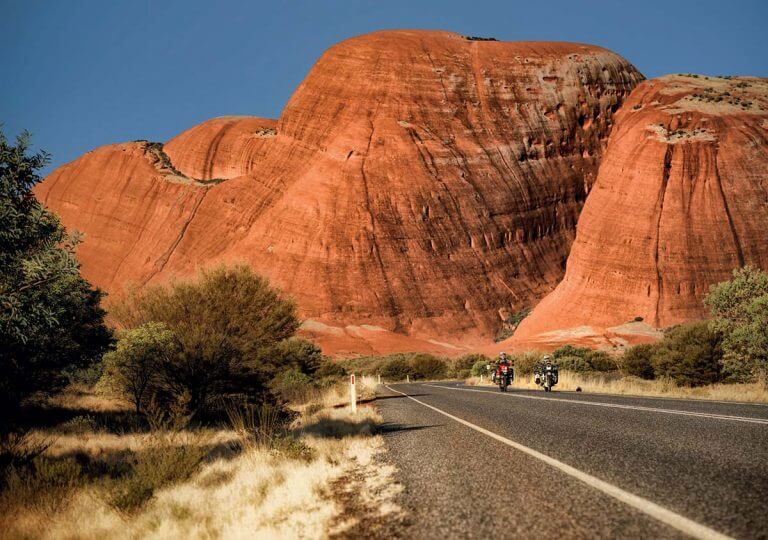Exploring Australia’s diverse landscapes demands vehicles that can handle various terrains and conditions. Whether traversing the rugged outback, coastal roads, or mountainous regions, selecting the right rental car is crucial for a safe and enjoyable journey. This article provides an in-depth look at the ideal rental cars for navigating the unique terrains of Australia, considering factors such as vehicle type, capabilities, and rental costs.
Understanding the Australian Terrain
Australia’s geography is diverse, featuring deserts, tropical rainforests, mountains, and extensive coastlines. Each terrain presents different challenges and requires specific vehicle attributes for a smooth and safe driving experience. Key terrains include:
- Outback: Characterized by arid desert landscapes, rough tracks, and extreme temperatures.
- Coastal Roads: Scenic routes with varying road conditions, including winding sections and potential flooding.
- Mountainous Regions: Steep inclines, narrow roads, and potential for snow in higher altitudes.
- Rainforests: Dense vegetation, muddy paths, and high humidity levels.

Essential Features for Ideal Rental Cars
When choosing a rental car for these diverse terrains, consider the following essential features:
- Four-Wheel Drive (4WD): Necessary for off-road conditions and uneven surfaces.
- Ground Clearance: Important for navigating rough terrain and avoiding damage.
- Fuel Efficiency: Crucial for long-distance travel in remote areas with limited fuel stations.
- Durability: The vehicle should be able to withstand harsh conditions and extended use.
- Comfort: Essential for long journeys to reduce driver fatigue.
Best Vehicle Types for Different Terrains
SUVs for Versatility
Sport Utility Vehicles (SUVs) offer versatility, making them suitable for various terrains. They typically feature 4WD, high ground clearance, and spacious interiors, which are ideal for carrying equipment and passengers. Popular models include:
- Toyota Land Cruiser: Known for its durability and off-road capability, it’s a top choice for outback adventures.
- Ford Everest: Combines comfort with ruggedness, suitable for both coastal and mountainous regions.
- Mitsubishi Pajero: Offers reliable performance on rough tracks and long-distance journeys.
4WD Vehicles for Off-Roading
For those planning extensive off-road travel, a dedicated 4WD vehicle is essential. These vehicles are designed to handle the toughest conditions, providing enhanced control and stability. Recommended models include:
- Nissan Patrol: Renowned for its robust build and off-road prowess.
- Jeep Wrangler: Offers excellent off-road capabilities with advanced 4WD systems.
- Land Rover Defender: Combines luxury with exceptional off-road performance.
Compact SUVs for Coastal and Urban Areas
Compact SUVs are suitable for travelers planning to explore both urban and coastal areas. They offer a balance of comfort, fuel efficiency, and enough capability to handle light off-road conditions. Popular models include:
- Mazda CX-5: Known for its comfort and fuel efficiency, ideal for scenic coastal drives.
- Subaru Forester: Features standard all-wheel drive, providing stability on varied surfaces.
- Hyundai Tucson: Offers a smooth ride with enough capability for light off-road excursions.
Pickup Trucks for Heavy-Duty Tasks
Pickup trucks are suitable for travelers needing to carry heavy equipment or planning extensive off-road travel. They provide excellent durability and load-carrying capacity. Recommended models include:
- Toyota Hilux: Known for its toughness and reliability, suitable for outback and rural areas.
- Ford Ranger: Offers a combination of power and comfort, ideal for varied terrains.
- Isuzu D-Max: Reliable and durable, well-suited for heavy-duty tasks and off-road conditions.

Rental Costs and Considerations
Factors Influencing Rental Costs
Several factors influence the rental costs of these vehicles, including:
- Location: Rental prices vary between cities and rural areas. Major cities like Sydney and Melbourne tend to have higher rates.
- Season: Prices can fluctuate based on demand, with peak tourist seasons generally seeing higher costs.
- Rental Duration: Long-term rentals may offer discounted rates compared to short-term rentals.
- Vehicle Model: Newer models or luxury brands typically cost more than older or standard models.
- Insurance: Comprehensive insurance packages add to the overall cost but provide essential coverage.
Average Rental Costs
To provide an idea of the costs, here are average daily rental rates for different vehicle types across Australia:
- SUVs: AUD 80 to AUD 150 per day
- 4WD Vehicles: AUD 100 to AUD 200 per day
- Compact SUVs: AUD 60 to AUD 100 per day
- Pickup Trucks: AUD 90 to AUD 160 per day
These rates can vary based on the rental company, location, and time of year. It’s advisable to compare prices and book in advance to secure the best deals.
Legal and Safety Considerations
Driving License Requirements
To rent a vehicle in Australia, a valid driver’s license is required. International travelers should ensure their license is recognized in Australia. Some rental companies may require an International Driving Permit (IDP) alongside the home country license.
Insurance and Liability
Comprehensive insurance is recommended when renting a vehicle for travel across diverse terrains. This typically includes coverage for damage, theft, and third-party liability. Renters should review the terms and conditions to understand what is covered and any potential exclusions.
Road Safety Regulations
Australia has strict road safety regulations that must be adhered to. Key points include:
- Speed Limits: Vary depending on the area, with lower limits in urban areas and higher limits on highways.
- Seat Belts: Mandatory for all passengers.
- Alcohol Limits: Strict blood alcohol concentration (BAC) limits, with zero tolerance for learner and provisional drivers.
- Wildlife: In rural areas, drivers should be cautious of wildlife, especially at dawn and dusk.

Planning Your Trip
Route Planning
Proper route planning is essential for a successful trip, especially in remote areas. Consider the following:
- Fuel Stops: Plan fuel stops carefully, as remote areas may have limited refueling options.
- Accommodation: Book accommodation in advance, particularly in popular tourist areas or during peak seasons.
- Weather Conditions: Check weather forecasts and road conditions, as certain areas may be impassable during extreme weather.
Equipment and Supplies
Ensure you carry essential equipment and supplies, including:
- Navigation Tools: GPS devices or maps for accurate route planning.
- Communication Devices: Satellite phones for areas with limited mobile coverage.
- Emergency Supplies: First aid kit, extra food, and water for unexpected situations.
Recommendations for Rental Companies
Choosing a reliable rental company is crucial for a hassle-free experience. Look for companies with positive reviews, transparent pricing, and good customer service. Dream Car Rental is one such company that offers a range of vehicles suitable for Australian terrains, ensuring a seamless rental experience.
Conclusion
Navigating the diverse terrains of Australia requires careful consideration of the right rental vehicle. From SUVs and 4WDs to compact SUVs and pickup trucks, each vehicle type offers specific advantages suited to different terrains. Understanding the factors influencing rental costs and adhering to legal and safety considerations will enhance your travel experience. Proper planning and preparation, along with selecting a reliable rental company, can ensure a safe and enjoyable adventure across Australia’s unique landscapes.

Hockey fan, mother of 2, band member, Mad Men fan and multidisciplinary designer. Working at the junction of simplicity and mathematics to create not just a logo, but a feeling. Nothing ventured, nothing gained.